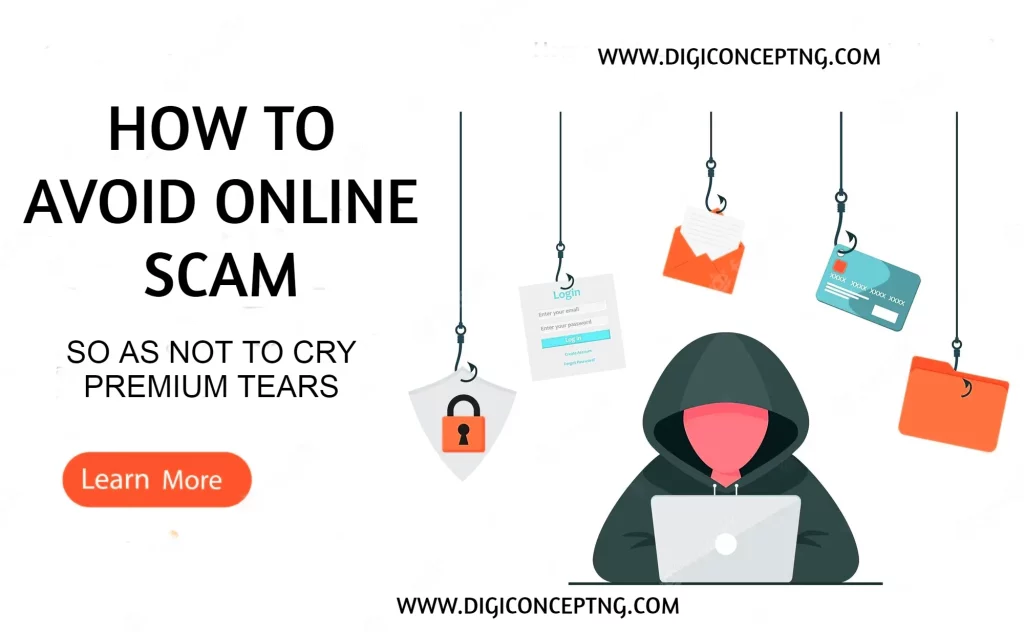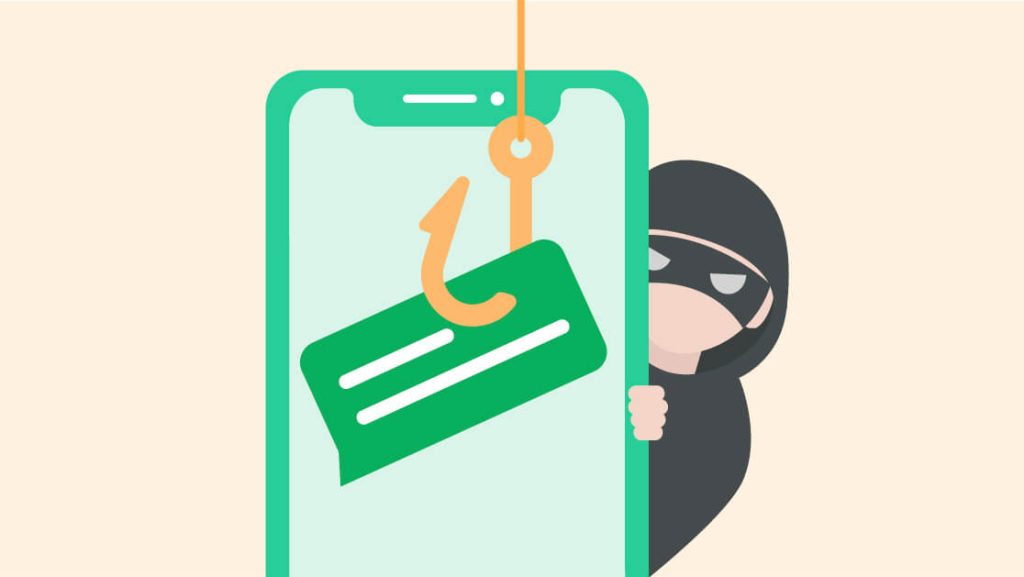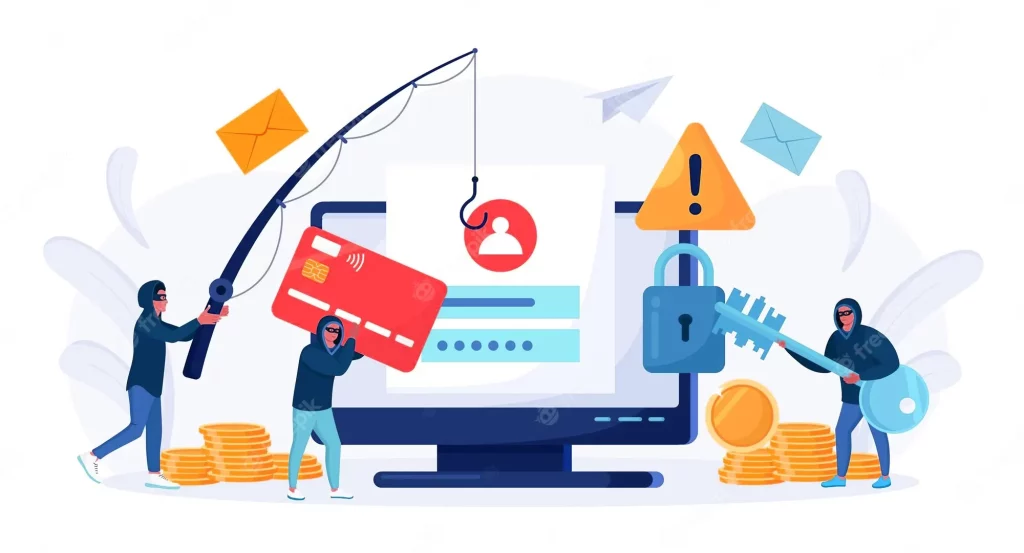Millions of consumers are victims of cybercrime each year. Consumer losses from online frauds exceeded $1 billion in 2015, according to the FBI’s Internet Crime Complaint Center. Here are seven recommendations for preventing online fraud in honor of Internet Safety Month in June.

According to Kathy Koestner, vice president of information security, the Internet has emerged as one of the most widely utilized instruments for fraud, and hackers are developing increasingly sophisticated hacking techniques. Since all personal information given online can be utilized by scammers to commit online fraud, it is crucial for customers to only complete financial transactions over trustworthy, secure wireless networks.
Who is a Scammer?
A scammer is a person who gets money illegally, typically by misleading people. They may also be referred to as cheats, fraudsters, deceivers, hustlers, tricksters, or Yahoo Boys (Nigeria). Therefore, a scam is a deceptive tactic employed by dishonest persons, organizations, or businesses to collect money or other valuables from others by impersonating someone with skill or authority, such as an investor, doctor, lawyer, advertisement, etc.
7 Simple Ways to Avoid Online Scams
Do you want to learn how to handle online frauds? Anyone can experience this scenario at any time. You just need to be aware of fraudulent schemes and know how to spot them if you do not want to fall for an internet fraud.
Get TikTok SEO Cheat here
1. Ensure To Update the software on your desktops and mobile devices
The best protection against viruses, malware, and other online risks is to use the most recent versions of your operating system, web browser, and security software. Activate automatic updates to get the most recent fixes as soon as they are released.
2. Use secure passwords
A strong password consists of a minimum of eight characters, a combination of upper- and lowercase letters, digits, and special characters.
3. Secure Your Personal Details & Mobile Devices
This is yet another foolproof method of avoiding fraud. Before discarding your bills, emails, papers, and other vital data, encrypt them.
Scammers may also ask for your bank account information so they can use it to break into your account and take money from it. Do not openly divulge your financial information, therefore. Keep your pin numbers, account and bank information, and passwords in an secure place.
Take great care when deciding how much personal information to post on social media. Scammers can establish a phony identity using your details and photos, making you appear to be the criminal. For privacy and security purposes, you should also install pin locks on all of your mobile devices.
Avoid utilizing WiFi hotspots and laptops to access online banking, make online purchases, or enter personal information. Secure your WiFi network with a password. Also avoid free wifi.
4. Ignore Suspicious Calls & Messages
Unknown senders’ messages ought to be deleted. Delete any questionable emails, pop-up windows, links, files, or attachments instead of opening them. Do not answer phone calls requesting information about your computer, remote access, or other things.

Use a reliable resource, such as a caller ID, phone book, or web search, to confirm the contact’s identification. Never rely on the contact information included in the communication that was given to you.
You will be in danger if you provide them with any information. That information will be used by them to access your machine remotely or to implant a virus.
5. Be wary of phishing scams.
Phishing scams deceive users into divulging confidential account or login information by using phony emails and websites. Never open any attachments or pop-up windows from sites you are unfamiliar with, click any links, or click any links. Send phishing emails to the Federal Trade Commission (FTC) at spam@uce.gov as well as the business, bank, or institution that the email is impersonating.
6. Shop carefully (Safely)
Before making an online purchase, confirm if the website is secure. Make sure the web address starts with https when you go to the checkout screen. A little locked padlock sign should also be visible somewhere on the page. You can find out more on how to shop safely online here
7. Check out the website’s privacy policies
Privacy rules, despite being lengthy and intricate, explain how the website safeguards the personal data it gathers. Consider conducting business elsewhere if you can not read or comprehend a website’s privacy statement.
8. Employ Using antivirus software
Using antivirus software is one of the strongest defenses against fraud. Antivirus or antimalware software may take your information and leak it to con artists without your knowledge. Along with using antivirus software, you should regularly check your device for malware that may have infected it.
9. Be skeptical
Never believe anything or anyone you read or see online. Always keep in mind that this technique may be a possible scam when dealing with unidentified messages from persons or corporations, whether it be over the phone, via mail, email, on a social networking site, or in person. If something seems too good to be true, it most likely is. And If the message or call comes from a buddy, verify to validate that it was truly them that sent it.
Be careful who you connect with when utilizing social networking sites like Twitter, Facebook, or Instagram. To keep yourself safe, use your privacy and security settings. Click on spam or block if you see any ominous conduct. You will avoid getting conned thanks to this perceptive judgment.

Signs of Money Scams
How can I tell whether I am a victim of fraud? Fraudsters and scammers frequently use persuasive tactics to collect money from you. These three warning flags point to a money scam. This indicator enables you to spot online scammers and determine if you are being scammed over the phone.
- You suddenly receive a message regarding a potentially life-changing investment or get-rich-quick scheme, and you feel constant pressure to do so. Walk away before it is too late because this is not a real transaction.
- Just too good of a deal, really. A product that is being sold online for approximately 40% discount is generally fake or a scam. Always, they will ask for a nonrefundable wire or bank transfer. Take no chances. Avoid buying that product if there is not a local office where you can file a complaint.
- A swindler will prey on your feelings. Exaggerations and threats are used to make a trade sound excessively urgent. Your capacity for critical thought is compromised as a result.
- Always involved is money. Although a con artist may claim that you have won money, your money is in danger, etc., the common denominator is money. This ought to be the clearest indication that you might be viewing a scam.
What to Do If You have Been a Victim of an Online Scam
Swindlers are working hard to defraud you out of your hard-earned money. They employ a variety of scam techniques, including cell phone smishing, website cloning, phony profiles, and email phishing. When scam victims are played or deceived and fall for a scam, they are embarrassed and try to cover it up. When you have been defrauded online, these are the best steps to take.
- Inform the police so they can track the person within your country or abroad.
- Inform the bank to put your account on hold.
- Register as a Fraud Victim and State Your Case
- Anti-Virus Software Use
- Block Pointless EmailsMessages
- changing your password
- Track and report any scam attacks with BBC Scam Tracker.
How to Know a Fake Website/ Email
A comprehensive list of scamming websites has been published online. Additionally, these websites mail people in an effort to steal their data and personal information. The best technique to identify a bogus website and email is in this way.
- Contraband Items
- Konga.com has been cloned or given a similar-sounding domain name, Kunga.com. This is clear evidence of a fraudulent website.
- Lower Prices
- Regular Email Communications
Although there is no infallible way to avoid a scam, adopting these signals will help you avoid being scanned. The best course of action if you come across a scam is to report it, submit a complaint, and share your experience.